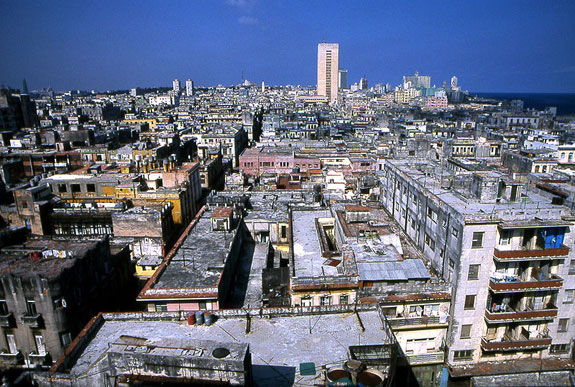
Cubans will soon be able to buy and sell property on the island nation. (Photo by Henryk Kotowski.)
By Ralph De La Cruz
Florida Center for Investigative Reporting
In his 50 years running Cuba, Fidel Castro could be accused of many things, except one: going unnoticed.
The same certainly can’t be said of Fidel’s brother, Raul, who took the reins of power from Fidel in 2008.
On Thursday, the Associated Press reported that Raul Castro’s government would soon be ending one of the principal tenets of communism: state control of all property. Cuba will soon allow citizens and permanent residents to buy homes and land.
On Nov. 10, we could be seeing the end of traditional communism in Cuba.
And yet, if anybody noticed, they didn’t seem to much care. There were no parades and parties on Southwest Eighth Street. That evening, the end of communism wasn’t even the lead item on The Miami Herald’s website. “Cooler temperatures on way Friday and Saturday,” beat it out. The story was at the bottom of the web page, under the “Cuba” heading. And comments to the story were skeptical and full of reminders of past liberalizations that were then turned back.
Around the state, it was the third item in the “World” section of the St. Petersburg Times’ website and didn’t make it on the Tampa Tribune’s front page — but was the 11th item under the sub-listing “news.” The story couldn’t be found on the Florida Times-Union hyperlocal Jacksonville website. And on the Orlando Sentinel website, you could read about Egypt, Palestine, Greece, China, Syria, Italy, and Afghanistan but not the change in Cuba.
Sounds like a Calle Ocho joke. Communism ended in Cuba — and no one believed it.
That’s because these changes have been implemented incrementally, gradually, deliberately. Some would say smartly.
This latest news followed pronouncements earlier this year allowing Cubans to buy and sell cars, work for themselves, and rent rooms and cars. But each liberalization came with enough restrictions to make them largely ineffective. For example, foreigners and Cuban exiles are barred from buying land, and Cubans typically don’t make enough — $20 a month — to buy property.
The strategy bears the profile of a politically astute, octogenarian dictator slowly letting the air out of an overinflated balloon.
But still, in a country that has had the same government since 1959 — almost as long as North Korea’s Kim dynasty — even limited home ownership and job opportunities are a sea change. And one concession followed by the other, well, that’s a trend.
Certainly it would be hard to truthfully call Cuba “communist” if it allows private ownership of lands and people to work for themselves.
“These are small things, but they point us toward an economy that is more normal compared to the rest of the world,” Omar Everleny Perez, lead economist at Havana University’s Center for Cuban Economic Studies, told the AP.
In a country where any criticism of the government is a whisper among friends, such a remark by a lead economist at Havana University is indication there is change occurring in Cuba.
